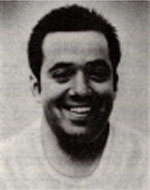Avinoam, son of Leah and Shlomo, was born on March 28, 1945 in Kfar Etzion. He began his elementary studies at the Tachkemoni School in Daughter of-Yam and graduated from Yavneh School in Ramat Gan. Afterward, he studied at the Ironi-B High School in Tel Aviv and completed his studies at Yeshiva-University in New York. Avinoam spent the first three years of his life with Simcha children, in a magical mountainous landscape in Kfar Etzion, whose parents were among its founders. With the fall of the Gush, the children continued to keep in touch and dreamed of returning to Kfar Etzion. Avinoam moved to live with his family in Ramat Gan, and apart from his long ties with his friends from the village, he made new contacts with friends and neighbors. As a child, Avinoam liked the joke, the game and the good deeds, but he always did it innocently, without any intention of harm. Despite his mischievousness in school and his sense of humor in the classroom, and although he did not spend much time studying, Avinoam was a good student. He was a member of the Bnei Akiva youth movement, where he continued to develop his pioneering consciousness, which his parents planted. Although he lived in the city, he saw himself as a “kibbutznik on the way,” and he did not like the life of the city. When he was sixteen, he traveled with his parents to the United States, where they went on a mission. It was a difficult crisis for Avinoam, who had to disengage from his friends in Israel, and did not like the American way of life. Because of the change of schools, Avinoam did not complete his studies in the same year as the rest of his peers, and he had to postpone his enlistment a year. But his desire to go out with his teammates to serve in the kibbutz as part of the Nahal Brigade forced him to complete his matriculation exams in five weeks and finish with honors, returning to Israel in time and enlisting with the rest of his group, while his family remained in the United States. The Nahal Brigade, along with its veteran friends from the village, was part of the Nahal Brigade, but Avinoam did not find his place there, and Sivan Eliyahu was a well-established agriculture, and Avinoam did not see him as a challenge. Avinoam was assigned to serve in the infantry in a paratroopers unit, and after basic training he was trained in parachuting and infantry training. The officers ‘course was offered to him to go to the officers’ course, but Avinoam chose to continue serving in his unit as a division sergeant. Avinoam, who was called “Pahpach” in the army, was appointed to the RSP, and in this capacity he maintained order and discipline in the unit, by means of persuasion and amusing words instead of the usual shouting and punishment.In the course of his regular service Avinoam participated in a war against infiltrators. And when he went to work, Avinoam joined his unit and together with his comrades fought for the liberation of Jerusalem, And later to liberate Kfar Etzion, and when the old dream turned to return to the place Avinoam decided to continue his studies at the Technion as a member of a group, but when he arrived in Kfar Etzion he found a way out of his desire for regular work in the agriculture, and he gave up his studies and devoted himself to the village life He invested his entire time in work and did everything possible to lead the enterprise to achievements.In the agriculture, Avinoam became a “permanent problem solver” with regard to the electrical system, repair of machines and cars – always true To help, both in the work and in the daily lives of the group members. Avinam was aware of the group’s problems and diedStirred it, and was active in solving the company’s problems. He always had the natural needs of the man living in the farm. He loved the easy conversation and expressed himself in comments and jokes, but under the skin of lightness and rough appearance, a sensitive soul was revealed and a thoughtful and profound mind. Avinoam aspired to thoroughness, to explore everything to the end and to see from afar, qualities that led him to original thought and depth, without accepting things at face value. He had quite serious opinions about the world, the state, and society, but he preferred the indirect approach, human and animal, to public expression. When he spoke, the honesty and sincerity of Avinoam, who always said what was in his Lev, stood out and did not try to stand out or attract attention. In particular, Avinoam saw value in itself as the most important thing, and in it he found his personal satisfaction. His qualities made him a focal point in the life of the village, and he had many friends. Even when he was away from his parents’ home, Avinoam’s ties with his family were not severed. His relations with his parents were friendly, almost without barriers, and were preserved throughout his life, even when he built a house in Kfar Etzion. On October 18, 1973, west of the Suez Canal, Avinoam was hit while fighting the Egyptian commando. He was killed and brought to eternal rest in the Kfar Etzion cemetery. He left behind a wife – Sandy, and three children – Orit, Roni Daughter of-Zion and Levi Yaakov, who was born a few days before the Yom Kippur War, and Avinoam did not attend the ceremony. After his death, a pamphlet was dedicated to the memory of Avinoam, the Kfar Etzion metal factory, which Avinoam co-edited, Noy has samples of the parts that the factory produced as part of a first project that Avinoam planned and carried out.
